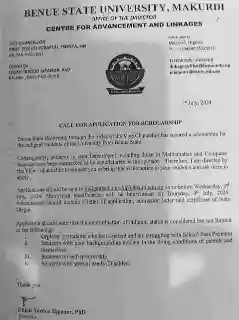The EU scholarship for Nigerian students 2025-2026 is ongoing. The European Union Delegation to Nigeria and ECOWAS has started accepting applications for the Erasmus+ Postgraduate Scholarship Programme for 2026. This programme offers Nigerian students the chance to study for Master’s and Ph.D. degrees in Europe, with all expenses covered by the EU. The aim of this scholarship is to promote academic excellence and foster international collaboration. For the sixth year in a row, Nigeria has been the top beneficiary of the EU postgraduate scholarships in Africa.
EU Scholarship for Nigerian Students 2025-2026
The Erasmus+ Scholarship Programme is a great opportunity for Nigerians looking to further their studies in Europe. The scholarship covers participation costs, travel expenses, visa fees, and living allowances. This year, the programme is also open to both teaching and non-teaching staff from higher education institutions.
Applicants are invited to apply for the Erasmus Mundus Joint Masters as well as the PhD programme scholarship.
The Erasmus Mundus scholarship is funded by the EU, and is awarded to students selected for attending Erasmus Mundus Joint Programmes at the Master’s or Doctoral level. These programmes last between 12 to 24 months and require studying at least three different universities in various countries, both within and outside the EU. The scholarship is available to students in Nigeria, which is a non-EU country.
Nigerian students who are accepted for this EU scholarship will study at different universities in Europe and beyond. Successful, top applicants will also receive fully funded scholarships. Erasmus+ also organizes student and doctoral candidate exchanges in Nigeria.
EU Scholarship for Nigerian Students Eligibility Requirements
To be eligible for the EU’s Erasmus+ scholarship, Nigerian applicants must be:
- Higher education institution staff
- Students at the short-cycle, Bachelor, or Master levels, or Doctoral candidates
- Registered in a higher education institution that participates in the Erasmus+ programme
- Enrolled in studies leading to a recognized degree or tertiary-level qualification
EU Scholarship for Nigerian Students Application Process 2025-2026
- To apply for Erasmus+, visit the official Erasmus+ scholarship application website Here to check your eligibility and understand this programme
- Search Erasmus+ course catalogue and apply at www.eacea.ec.europa.eu/scholarships/erasmus-mundus-catalogue_en
- Make your application directly to the institution offering the chosen programme. The catalogue shows you the available programmes you can apply for
Please note that there is no central application form for studying abroad with Erasmus+. Candidates simply apply for their preferred courses directly to the institution offering them using the catalogue.
You can contact the international or Erasmus+ office at your university or higher education institution to start the application process. Your institution must select applicants fairly and transparently. Programme options include:
- Renewables-based Power Systems
- Chemical Innovation and Regulation
- Public Health in Disasters
- Biorefinery
Other programmes cover areas like European M.Sc in Marine Environment 2030, Soil Science, Systems for Sustainable Engineering, Sustainable Mineral and Metal Processing Engineering, and Sustainable Ship and Shipping. These programmes are designed to meet your degree-related learning and personal development needs.
Remember: EU’s Erasmus+ Covers All Student Expenses
Grant agreements are signed by the sending or receiving institutions, which apply for funding on behalf of students. If accepted for a grant, students will sign a participant grant agreement. The grant covers travel and daily living costs. The specific amount depends on different factors such as living cost differences between countries, the number of applicants, the distance between countries, and other available grants.
Erasmus+ students won’t pay fees for tuition, registration, examinations, or access to laboratories and libraries at the receiving institution, though small fees for insurance or student union membership may apply.
In the End…
Students’ receiving institutions will provide a transcript of records confirming completion and results achieved during the programme. The sending institutions MUST recognize and count towards the candidates’ degrees. Students’ mobility period MUST also be recorded in the Diploma Supplement, depending on the location (or country) of their institution.
After successfully completing the programme, an Erasmus Mundus Joint Master Degree (EMJMD) scholar will receive a master’s degree jointly awarded by a consortium of universities within the EMJMD programme, a key part of Erasmus+. Most awardees begin their Erasmus+ journey in September. Typically, applications for the EU Erasmus+ are submitted between October and January for courses starting the following academic year.
READ ALSO:
- Fully Funded Scholarships for African Students
- Fully Funded Scholarships in UK for Nigerian Students
- Ongoing Scholarship in Nigeria
- NWAG Undergraduate Female Students Scholarship
- India Scholarship for African Students
Each master’s or PhD scholarship website details the course of study, participating universities, entry requirements, and the application process (with and without scholarship). Please, use the course catalogue as indicated in this guide to select a course of study and begin your Erasmus+ scholarship application. Good luck.
Note: The author, Philip, has revised this information, and it has been updated to help you make your study-abroad decision.

